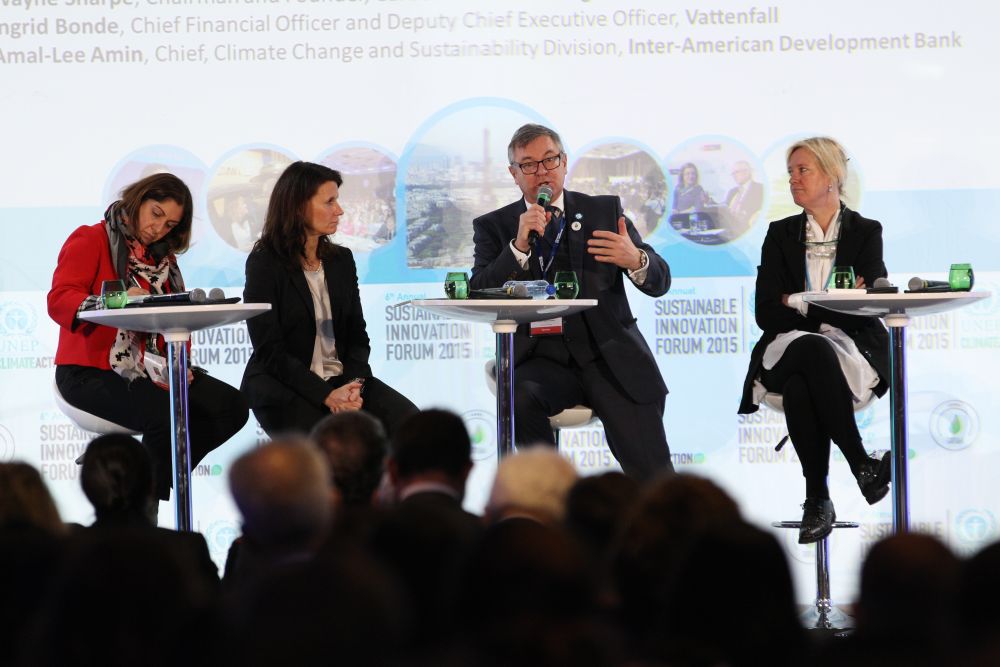Circular Economy Panel
Scientists increasingly agree that planet Earth has only limited and finite natural resources. Traditional economic models were built around linear business models; extract cheap and easily accessible natural resources as raw materials for production, use the products for a limited amount of time to keep material production going, and waste what we no longer use to landfill.

Scientists increasingly agree that planet Earth has only limited and finite natural resources. Traditional economic models were built around linear business models; extract cheap and easily accessible natural resources as raw materials for production, use the products for a limited amount of time to keep material production going, and waste what we no longer use to landfill.
By 2100, it is expected that 11 million tonnes of waste will end up in the landfills daily, and the global cost of dealing with all this waste is rising from $205 billion a year in 2010 to $375 billion by 2025.
Natural scientists argue that the planet’s ‘sources’ and ‘sinks’ cannot stand those linear business models for long. Not only are some fundamental sources finite, like fossil fuels, potable water and most of the minerals, but also the planet’s sinks have lost the ability to absorb all this waste. Air, ground and ocean pollution as well as the enhanced greenhouse effect are some pivotal signs that the planet cannot absorb waste infinitely.
This dual issue is tackled by the concept of circular economy, which carries a fundamental principle: if the planet is finite, it cannot sustain an economy designed for an infinite one. A circular economy is by design restorative and regenerative, aiming to keep products, components, and used materials at their highest utility and value at all times. It values finite natural resources, it preserves and enhances natural capital, it optimises resource yields and minimises risks associated with finite stocks by incorporating renewable flows in the production chain.
However, as every niche idea, there are a lot of challenges to be overcome, including changing business models, policies and consumers’ mindsets.
Global industry experts will address the above challenges and more during the Circular Economy Panel of the 8th Sustainable Innovation Forum. Some of the topics that will be discussed include:
- How easy is to develop a strong business case that creates revenues through different business models than the ones we are used to?
- What is the role of the government to promote this different model? What is best, subsidies or regulations?
- What about local governments? How can interested parties combat budgetary uncertainties by focusing on local resources? What are the opportunities of having resources circulating in the local economic system?
- How do we turn from a material to a service-based consumption model?
- What are the challenges in the transformation of traditional production processes?
For this panel, we handpicked representatives from lead businesses and bodies, including the public and the private sector. Some of the speakers that will lead the discussion are:
- Kimmo Tiilikainen, Minister, Ministry of Environment, Finland - a country leading developments in the industry with its national circular economy roadmap and innovative initiatives.
- Henrik Ehrnrooth, Chairman, Climate Leadership Council (Finland) – The Council promotes international best practice and implementation on how the private sector can respond to climate change and the scarcity of natural resources, as well as to improve their ability to utilise the business opportunities related to these.
- Wayne Hubbard, Chief Operating Officer, London Waste and Recycling Board - The Board’s circular economy programme is targeting a £50m investment by 2020 to make London a city where businesses utilising closed-loop systems can “flourish”, including more than 100 practical actions to kickstart this transition.
Climate Leadership Council (CLC) is a Strategic partner of this year’s Sustainable Innovation Forum. It is currently comprised of 31 members, which represent almost 50 percent of the market cap of the Helsinki stock exchange, specialised in creating solutions for climate financing, risk management, carbon pricing, carbon footprint and handprint, built environment, transportation, energy, circular economy and consumer cleantech.
The 8th Sustainable Innovation Forum is taking place 13-14 November, alongside COP23 in Bonn Germany. To learn more about the high-level event and the agenda with a list of confirmed speakers, you can download the event’s brochure here.
To register to attend the event, click here.




